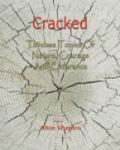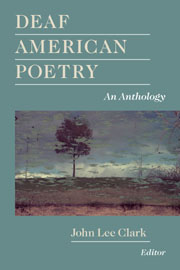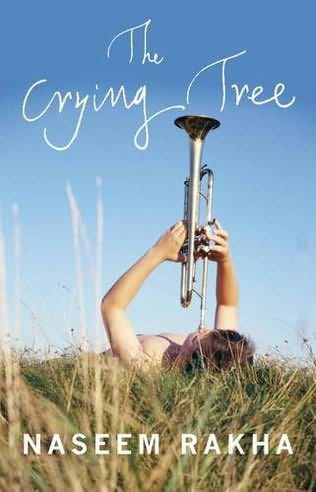|

Cracked: Timeless Topics Of Nature, Courage and Endurance by Alice Shapiro
Book Review by Skye Leslie
Paper Back:
111 Pages
Publisher:
TotalRecall Publications, Inc.
Price: $14.99
ISBN: 9 781590958353
What I’m
interested in these days is illumination. How do we bring light to bear in all
the varying aspects of our lives? I especially enjoy considering the concept
of light in the written word. Does the writer move a spotlight on to a subject
in such a way which invites me to see, even the most mundane, in a new and perhaps startling focus?
Cracked by
Alice Shapiro is just such an adventure into the concept of lighting in poetry. The
title of her slim and concise book of poems was inspired by the words from a Leonard Cohen poem:
There is a
crack in everything
That’s
how the light gets in.
Cohen later
reworked his poem and it became the famous song, “Anthem.”
Over the years,
another theory about illumination has evolved for me and it is that our capacity to open the world, yes, just a crack and
view it in a compassionate and empathetic way, is directed by our ability to suffer loss, endure hardship and emerge at the
other end of a dark tunnel. Certainly, Shapiro who lost a job, found herself
homeless and job hunting in a shelter has emerged, through her writing, in the bright light of day.
There are one
hundred nine poems in this volume and the book is a page turner. I found myself
gulping down the words in each of her poems.
I read through the volume so quickly, I had to slow myself down and go back and read again.
There are wonderful
lines of words such as:
The tulle of
sneers . . .
You slouch,
beautifully, lying in wait for a good man’s cheek . . .
mad lungs spitting
air . . .
yet love arrived
this morning, approving as an azure bloom . . .
All that Shapiro
has written is proof of keen observation.
From: “What Do You Keep?”
Things passed:
prickly red
hedges
semi circling
a grand
viridian fir;
an opalescent
rainbow on
a rutted
gray sideboard.
Each of the
poems in Cracked bears an elegance and grace. Whether Shapiro is referring to
the breakdown of a microwave oven and adjusting to a stove top or making a poem
out of a business meeting, her use of words and metaphor bring beauty to the verse.
There is not
an extra word, a stanza gone amuck and Shapiro never loses sight of opening up her subject matter, sometimes slightly and
other times with full force as in “After a Break”:
It’s
time to play –
spurn the crippling
ache, shun
the hurt arced
fingers feel
and twist them
round the pen,
a fluid instrument
that mirrors
today’s
pilgrimage . . .
Sparkle, subservient
digits –
invent a sentence!
My favorite
poem in the book is “Supplication”:
Today I moved.
From room to room
chores completed,
deeds done,
work gained
its proper foothold.
The battle
‘tween flesh and spirit yielded
as I mused
on prayers in the midst of motion . . .
I am drawn
to the coupling of the everyday with spiritual in this poem. The suggestion that
as we go about the simplest of tasks, there is something else at work within us. The
notion that as I wash the dishes, prayer may be a consideration. The consideration
that what appears gray may suffuse with light.
“You
are in my simple song,” is an opening line in “A Wilderness” and Alice
Shapiro brings each reader into her “simple songs” through little
tricks in language which allow us to discover just where the cracks lie for each of us in this world.
Cracked is
not just an excellent read; it is an empowering, thoughtful and lyrical path of words leading us through a nuanced journey
where the words direct light in just the right way.
Alice Shapiro
has been writing since 1985 when she studied under William Packard, found of the “The New York Quarterly.” In addition, Shapiro has had two plays produced.
Her “Four Voices” play is the winner of the Bill C. Davis Drama Award.
As further evidence of Alice Shapiro’s generosity of spirit, partial proceeds from the sale of her books are
donated to SHARE, a crisis center for domestic abuse survivors serving Douglas County, GA.
~~~~~~~~~~~~~~~~~~~~~~~~~~~~~~~~~~~~~~~~~~~~~~~~~~~~~~~~~~~~~~~~~~

Deaf American Poetry – An Anthology, John Lee Clark, Editor
Book Review by Skye Leslie
Paperback,
292 pages
Publisher:
Gallaudet University Press, 2009
Price: $35.00
ISBN: 13: 978-1-56368-413-5
ISBN: 10: 1-56368-413-6
As an avid
reader of poetry and prose, I am not often set back on my heels after opening a new book.
I am sometimes delighted – sometimes dismayed, often fascinated. I
am usually transported into the story or verse as if traveling with a new friend. Rarely,
am I thrown into a world shaped by controversy, racked with pain, enlightened, schooled and made a convert. This was absolutely the case with Deaf American Poetry, an Anthology edited by John Lee Clark
and published by Gallaudet University Press.
Deaf American
Poetry, an Anthology, contains ninety-five poems written by thirty five deaf authors.
It also contains an editor’s note and an introduction. There is
nothing out of the ordinary here. However, Clark’s note and introduction
serve to alert the reader that they are, in more ways than ever, entering completely new territory.
When John Lee
Clark, set out to pull together writings from deaf authors, he was hoping to gather poems from writers who had, obliquely
or directly, referred to their experience as deaf. What he found was that writers
with hearing loss did not address this subject. It was only the profoundly unhearing,
who used American Sign Language as their mode of communication who addressed the subject in which Clark held the greatest
interest. Thus, this anthology begins with a division between American poets
who may have hearing loss and those who are “culturally” deaf. Clark
chose the latter.
As a unit,
these poems are a reflection on the signing community “and how Deaf people struggled against oppressive forces to discover
more about themselves and to celebrate who they are.” As well read and
culturally sensitive as I’ve thought myself, this book has been nothing short of a revelation regarding the subculture
of the deaf community. It is a book as important, both as literature and as history,
as anything written in African-American literature, the diaspora of the Palestinians and their tales, the attempt to bring
into words the suffering of women and children in the long war in Sierra Leone. The
anthology serves as spotlight on these deaf poets, who, according to Clark “have contributed to the raising of public
awareness about their community and its issues; they have inspired and led other Deaf people, both on and off the page; and
their poems have, again and again, crystallized for many of their readers what it means to be deaf and how to embrace it. No understanding of deaf culture and its history is complete without an appreciation
of deaf poets and their work.”
When I was
given the book to review, I wondered how the culturally deaf person could bring the sense of sound and voice to poetry. It never, however, occurred to me that based on being profoundly deaf, controversy
would surround these poets and their ability to contribute in a significant manner to the world of poetry at large. Once again, I was ignorant. Apparently, according to Clark,
an often asked question is, “can Deaf people write poetry?” There
are others issues surrounding the deaf poet’s expression of himself – do they write or do they sign? Do they conform to poetic traditions or do they somehow veer off on another path?
Paraphrasing
Clark, some deaf people hate poetry because it was shoved down their throats during their school days and this is most particularly
true when poetry was used as a kind of speech therapy device. Because poetry
is so often given its true flight through voice, what does the deaf poet do to bring this about? Does the deaf poet cause a bookstore or other venue to incur extra costs by hiring an interpreter for their
sign language? Do they attempt to read out loud in their own broken voices, if
they have one at all? In his short note, Clark had my head spinning over the
deaf poet’s need to express themselves and the boundaries and prejudices held against them by the hearing world. In the end, Clark invites the reader to seriously review the work he presents and
to draw his own conclusion as to the merit of the work presented.
Clark chooses
a simple yet effective layout for the work contained in this book. He begins
and ends, using the birth date of each poet included, with a chronological layout. This
serves to move the reader from the year 1808 to the last poem in 1979. It is
highly impacting. I was able to watch the voice change from one of apology to
the stronger and more emphatic voice of anger. One is allowed to bear witness to the persecution and abuse, the marginalization
of the culturally deaf community. An additional bonus to the poetry is the inclusion
of a concise biography preceding the actual work of each poet. These small glimpses into lives led allowed me to come to the pieces with an enhanced sense of what I was
being presented for reading.
Deaf American
Poets begins with a poem by John R. Burnet (1808 – 1874). It is titled
“Emma.” The poem is narrative and Clark suggests it “is a prime
example of pandering to a hearing audience and an elaborate advertisement for institutions for the instruction of the Deaf
and Dumb.”
From “Emma”
The Deaf and
Dumb? is there another word
By which more
sad emotions can be stirr’d? . . .
How would the
heart shrink from the mighty sum,
And bleed to
contemplate the Deaf and Dumb! . . .
And shall the
feeling in mere pity end?
Will you not
too a helping hand extend?
Given that
Clark knows far more about his own culturally deaf community than I can ever hope to, I acquiesce to his assertions here. On the other hand, given the time, the development or lack of development of the deaf
community and their invitation into the world of writing – this poem, “Emma,” drew from me a compassionate
response. In the end, I am pleased that Clark chose this as the poem with which
to lead the reader in to the rest of the book. If nothing else it serves as a
marker of how far the deaf American poet has come in an understanding of himself and his place in literature.
The last poems
in the anthology are by Alison L. Aubrecht (1979 - ). These poems are a
long way from pandering and maudlin sentimentality or begging for instruction. For
the most part Aubrecht’s poems serve to indict the family and teachers
of the culturally deaf. A profound sense of loss and yearning runs through the
work of Aubrecht. One need not dig around for metaphor coming across the first
poem in the series titled “Ape Child.”
From “Ape
Child”
she sits at
her desk
in a secluded
classroom . . .
during break
she finds herself
gesturing
with another
classmate
only to have
a ruler
SLAM down on
her hands
SHUTTING OUT
HER SPIRIT . . .
Or in “Conditional
Wings” :
i have longed
To be a part
of you, family
So deeply that
it hurt like hell . . .
And in the
poignant, “The Ghost in Yellowed Photographs, To my father”
All those times
you shunned me
Because I was
too hard to communicate with
All those times
you preferred him to me
Because he
could hear you better . . .
Deaf American Poetry, An Anthology was
a bittersweet gift to review. Fascinated by the history of the culturally deaf
in America, I now feel compelled to read and know more. Reading the poems as
they play out over almost two centuries, I was glad to hear the voices begin to change, begin to analyze their situations,
to bring to the page an honest and courageous exposition of the culturally deaf experience in this country. Dwelling on Clark’s introduction will cause the reader, as it did me, to consider this sub culture
of our country. Every day the deaf are giving words in sign language to their
experience in this world and so many of us are, through bias and separation, through pity and disbelief, bound to never hear
them.
At the end
of his note at the beginning of this collection, Clark invites the reader to make their own critical analysis of the work
presented. The collection includes poetry in narrative, free verse, and rhyming
styles. I did not love every poem I read but it had more to do with style preference
than anything else. I do not prefer, for instance, rhyming poetry. However, armed with a new perspective toward the voice of the deaf American poet, I could still be
swayed, despite the rhyme in a poem such Ars Poetica (Or, Advice to Aspiring Deaf Poets) by Robert F. Panara (1920 - ):
If you would
be a poet, mark these words:
Most modern
writers thrive on naked verbs
As readers
dote on headlines. Never fear
The use of
“free verse” when you cannot hear . . .
I was thrilled
to find in the reading of these works that between 1808 and 1920, the deaf American poet had moved to a place where poking
fun at himself was now a part of his experience.
As I would
encourage anyone to read widely in poetry, to look at the African-American experience, the South African poet, the poetry
coming from women out of India and the Middle East, I most highly recommend this anthology.
It is a glimpse, not in the least bit subtle, in to the talent, suffering, discernment, anguish and yes, joy –
of the deaf American poet. It was simply a privilege to read this important and
historic anthology. Congratulations to John Lee Clark, Editor and Gallaudet University
Press.
~~~~~~~~~~~~~~~~~~~~~~~~~~~~~~~~~~~~~~~~~~~~~~~~~~~~~~~~~~~~~~~~~~

The Crying Tree by Naseem Rakha
Book
Review by Skye Leslie
Hardbound,
353 Pages
Price:
$22.95
Publisher: Broadway Books, New York, 2009
ISBN: 978-0-7679-3140-3
In
Naseem Rakha’s The Crying Tree, everything is good down on the farm, where Irene and Nate Stanley live a quiet,
content life alongside their two children, Bliss and Shep. Suddenly, Nate announces a move from their family farm in Southern
Illinois to the high desert of Oregon. Nate will take a position as a deputy
sheriff in their new home. It is in Oregon where the Stanley family’s nightmare
occurs and Shep is shot and killed during what appears to be a home robbery.
The
murderer has a history of assault, robbery and drug related offenses. The Stanley
family enters a vortex of hatred for the murderer which separates and depresses the entire family as they all begin to lose
touch with one another.
At
first look, the plot of this book is one that would be easy to marginalize as a grouping of characters working out the clichés
of forgiveness and redemption. One would be unwise to do so. This book is a creative and many hued look into hatred. It
is a book which examines the insidious nature of unresolved rage and how it spreads across a human being like a rash across
a body. It is a book which examines the choices we make in the working out of
grief which can ultimately rob us of our own lives.
Often,
I have great difficulty with books in which the plot and character development are moved along through the use of dialogue. Rakha is a master of the art of relaying conversations between people, even the long
silences which can occur, in a way which gives all her characters great depth. One
feels the transitions the mother, Irene, makes as she faces the horror of her own life, the longing from great distance of
the daughter, Bliss and the pent up hostility of the father, Nate.
This
book does not lag nor does it preach as it introduces the widespread disaster which occurs when Shep dies. Rather, through
strong characters, the book is an illustration of looking into one’s own heart, making choices and how reconciliation,
though hard won, may come about.
As
the book begins to move to its end, a twist is thrown in. For me this was problematic. I felt it detracted from the major
issue of the book. However, for others it may give greater understanding to one of the central characters.
All
told, Naseem Rakha has written a moving and fast-paced chronicle of tragedy and redemption without ever reverting to sentimentality.
Naseem
Rakha is an award-winning broadcast journalist whose stories have been aired on NPR.
She lives in Oregon’s Willamette Valley.
|

